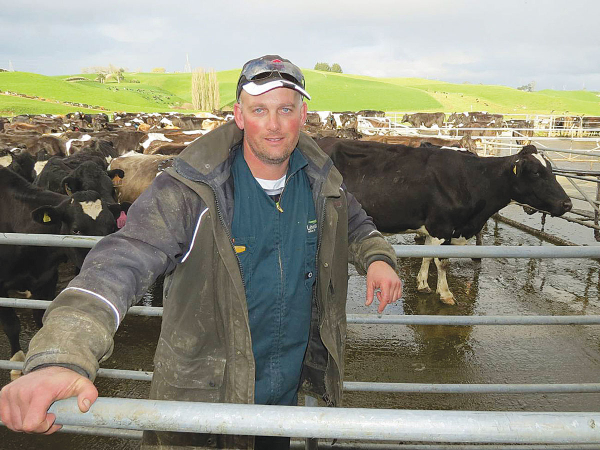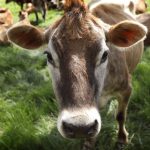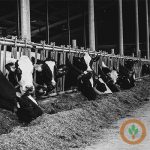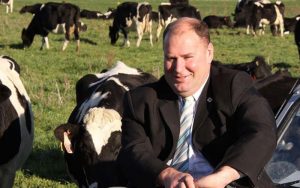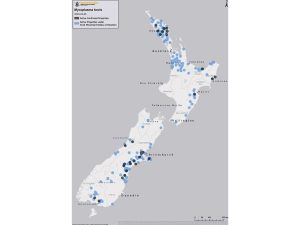
A 66% reduction in the dairy sector’s biosecurity response levy will land well with farmers, says Federated Farmers dairy chair Richard McIntyre.
“Things are still tough on farm and anything that takes some cost out of the budget will be warmly received,” McIntyre told Dairy News.
DairyNZ announced last week that thanks to a national effort from New Zealand dairy farmers in response to M. bovis, the levy will reduce from 2.4c/kgMS to 0.8c/kgMS at the start of next month.
“When the sector works well together, we get results,” says DairyNZ chair Jim van der Poel.
“The 6% reduction in the levy dairy farmers pay reflects the good progress made in response to M. bovis. While we may still see a few more cases, we are now approaching the surveillance phase, and costs have reduced, thanks to a combined effort.”
DairyNZ director Chris Lewis says the decision to reduce the levy was made with confidence.
“We’re in a good place right now and this levy reduction will be some relief to dairy farmers, ensuring they do not pay more than is required. The programme to eradicate M. bovis has been at a huge financial and emotional cost to New Zealand farmers, yet the cost of letting it spread would have been much higher.”
The M. bovis eradication programme has cost around $722 million to date.
It was estimated the cost of letting it spread would have been $1.3 billion in lost productivity in the first 10 years alone.
The agriculture sector’s cost share for the biosecurity response levy is 32% with the Government funding 68%.
Of the industry cost, DairyNZ contributes 94% while Beef + Lamb NZ funds the remaining 6%.
The levy is managed by DairyNZ and paid to MPI. Levy funds can only be spent on response to an incursion, therefore the levy is adjusted to meet the dairy response cost obligations.
It is separate from the DairyNZ milksolids levy.
Lewis says that around 98% of New Zealand dairy farmers have helped the 2% of farmers affected by M. bovis.
“The biosecurity response levy has been invaluable in the response to M. bovis. Without the collective effort of dairy farmers pitching in, we wouldn’t be where we are today with a stronger, more resilient biosecurity system.”
Lewis points out that this is an important time too to highlight this good biosecurity practices and keeping NAIT records up to date will ensure the risk of M. bovis and other livestock diseases are minimised.
You can now read the most important #news on #eDairyNews #Whatsapp channels!!!
🇺🇸 eDairy News INGLÊS: https://whatsapp.com/channel/0029VaKsjzGDTkJyIN6hcP1K
